People love or hate Nassim Taleb. At least, that was my impression reading about this book online. Some people believe he’s an original thinker that revolutionized their understanding of the world. Others say his writing is full of pride and repetition.
So who is right? The fans or the critics?
I think people who have some experience in financial trading may find Taleb’s ideas more valuable. They have probably seen many smart people making the errors described in this book.
On the other hand, people who do not practice trading may oversimplify Taleb’s ideas into common sense mottos like “bad things happen” and “success is all random.” I think they are most likely to miss the value.
Anyway, this book has three parts:
- Part 1 explains uncommon ideas on probability. Taleb shares his trading strategy that is based on suffering frequent small losses, but winning a few very large gains.
- Part 2 explores cognitive biases that we have. Our decisions are often flawed because our minds do not easily think in terms of abstract probability. In other words, we get fooled easily.
- Part 3 shares strategies for facing randomness. Taleb himself avoids information filled with noise such as the news and follows a stoic approach towards life.
About Nassim Taleb
Nassim Taleb (author site) is a financial trader and best-selling author of 5 books including The Black Swan (our summary). Since 2008, he’s been a Professor of Risk Engineering at New York University. Taleb’s trading strategy was different than most other professionals because he aimed to make money not when markets went up, but when they went down during unexpected “Black Swan” events. He did very well during the financial crashes of 1987 and 2007.
🤔 1. Remain Uncertain: Having less confidence in current theories and models
If history shows us anything, then it shows us things are always going wrong in an unexpected way. Yet we never seem to learn the lesson. We continue to act as if the future will be the same as the past.
This mistaken attitude is especially clear in financial trading, the field Nassim Taleb has worked in for decades. Over and over again, he has seen smart and intellectual people become tricked into a false sense of confidence by their abstract models and theories.
And then—BAM! Another huge unexpected crash happens and many lifetimes of earnings are wiped out in a few days. This is called “blowing up” in the financial world. But we have to ask:
- If our largest institutions and authorities were unable to predict the big crashes of the past, maybe we should assume they’re flying blind today also?
- If crashes and crises happen over and over again, should we really treat them as something unexpected?
- Instead, maybe we should accept life’s inherent randomness and build our trading strategies to work around those worst case outcomes, so they will not devastate us in the future?
Well, Taleb asked those questions a long time ago, which led him to approach trading in a very different way from most others. That’s how he managed to thrive during some of the darkest market cycles in recent history. He actually makes money when events happen that are large and supposedly ‘unexpected.’
In the 1700’s, philosopher David Hume wrote about the “problem of induction” (Britannica.com) which raised the important question about whether we can really be sure of any cause-effect relationships in life. No matter how many times we see something happen like the sun rising, that doesn’t guarantee it will happen again tomorrow.
Then in the early 1900’s, Karl Popper took this idea further and revolutionized science with his concept of falsification. Popper argued a scientific theory can never be fully proven to be true, it can only be proven false. This kind of fundamental uncertainty about the future forms the cornerstone of Nassim Taleb’s approach towards trading.
The most important thing, in Taleb’s eyes, is to remember that we don’t really know much. Even the most advanced human theories about the universe will eventually be outdated. (Just as Newton’s theories are useful, but eventually couldn’t explain everything in the universe, so we needed to move on to newer theories like quantum physics.) This reminds me of what the great early philosopher Socrates said, “All I know is that I know nothing.” It is a motto of humility and skepticism.
I think it’s easy for many causal readers to hear this and dismiss it as almost common sense. “Okay, so we can never be really sure about the sun rising—but how is this useful in my life?” In the real world of trading and economics, the professionals put a lot of confidence in abstract models used to find patterns in past market data and try to define risk clearly. It is really towards those people that Taleb is writing, to warn them that abstract theoretical models are blind towards large, rare and unexpected events.
Most traders and economists put too much confidence in abstract models. This blinds them to the risks of large and rare events that the models do not predict, like the many ‘unexpected’ crashes throughout history.
🤷 2. Be Inconsistent: Remaining independent of our past beliefs
There’s something very funny about humans—we often become ‘married’ to our opinions, positions or beliefs. Staying attached to a past position can often benefit our careers and relationships, making us appear more dependable and consistent. But in financial trading, it can be a quick route to disaster. In psychology, this would be called “The Sunk Cost Fallacy” (APA.org).
In another book, Professor Robert Cialdini wrote about a study from the 1960’s that illustrates this psychological effect very clearly. Researchers went door-to-door and asked people to put a small sticker in their window that said “Drive carefully.”
Two weeks later, they asked people to put a large sign with that same message on their front lawn. What they found was incredible: people were 4 times more willing to agree to the large request if they had agreed to the small sticker beforehand! In other words, they felt almost obligated to appear consistent with their past actions.
So how can we remain flexible about our opinions? Well, Taleb says we must avoid being certain about anything, and instead view our beliefs as more or less probable. In his eyes, one of the best models for this is the financial speculator George Soros, who changes his mind extremely easily in reaction to new information that he was wrong.
The great businessman Sam Walton was always trying new experiments in his Walmart stores and then changing his beliefs based on the results. This adaptability appeared to be a key to Walmart’s incredible growth. In his autobiography, Sam wrote: “But all this requires overcoming one of the most powerful forces in human nature: the resistance to change. To succeed in this world, you have to change all the time.”
Humans have a natural tendency to become attached to our past positions, which often causes failure in business. Instead, we must avoid certainty in our beliefs, only seeing them as more or less probable.
📊 3. Don’t Value Track Records: Past success may not mean anything
We should generally ignore track records, says Taleb. He argues that a few years of success is caused by luck much more often than we think, though we mistakenly assume it is caused by skill. Many wealthy financial people who take great pride in their past performance find this view difficult to accept. So they are fooled over and over again by a “successful track record” held by a trader, fund or CEO.
Let’s look at 3 ways that success may be the result of hidden luck:
- Survivorship bias is the idea that we only pay attention to the winners in a field, not the losers. So we look at those who “survived” and value their advice. But we often ignore that many people who failed could have followed the exact same advice as the “survivors.”
How can we escape this bias? By paying attention to the initial sample size. This means looking at ALL the people who made an attempt, not just those who ended up succeeding. For example, let’s say we studied 500 CEOs over 5 years and found that 50 of them grew their companies. Many people would assume those 50 CEOs had better skill or strategy. Yet because we know the initial sample size, we can see that 10% of them could have simply gotten lucky. - Chaos theory (a.k.a. the Butterfly Effect) is the idea that small causes can cause huge disproportionate chain reactions. In many people’s lives, a small stroke of luck or advantage at the beginning can propel them to wealth and fame.
For example, Bill Gates is very smart and hardworking, but is he thousands of times more smart and hardworking than other computer programmers? Definitely not. But his software Windows was lucky to become the dominant operating system at the right time, giving him essentially a monopoly on the market and protection from competition. (Read our summary of billionaire Peter Thiel’s book Zero to One to learn more about these kinds of “legal monopolies.”) - Short-term evolutionary fitness. Some groups of traders can succeed big for years, then suddenly they are all wiped out by an unexpected change in the markets. (For example, many traders who bought bonds in emerging markets did very well from 1992 until 1998, then they blew up.) How does that happen? Well, their strategy happened to be a perfect fit for the current market cycle, but when the cycle inevitably changed to a different one, they didn’t survive.
Wow!—That is a lot of ways successful people could simply be lucky! I think it’s tempting to oversimplify Taleb’s ideas into “success is all random.” But his message is really not that randomness determines everything, but that it plays a larger role than we assume, especially in fields like trading, entrepreneurship and creative arts.
Even several-year-long “track records” of success may be the result of randomness more often than we assume because of: 1. Survivorship bias (paying attention only to the winners), 2. chaos theory (a small bit of luck compounding), and 3. short-term evolutionary fitness (strategies that work for the current market cycle).
🔒 4. Prioritize Certainty: Estimating the risk in a path to success
How can we figure out how strong of a role that randomness played in someone’s success?
The first step is to consider alternative histories/paths. Imagine someone who won the lottery. They could have instead lived millions of “alternative histories” where they bought a lottery ticket and didn’t win. On the other hand, a successful doctor has far fewer alternative histories where they entered medical school and failed due to bad luck alone. So by Taleb’s method of accounting, the doctor’s success is worth a lot more than a gambler’s because it’s more certain.
This is also how Taleb avoids feeling too envious when some naive young trader begins making a lot more money than him. They will usually “blow up” after a few years, while Taleb’s slower strategy insures him against incredible losses.
We should not judge a decision by whether it succeeded or failed in hindsight, but by how likely it was to succeed at the time it was made. I think this is a point made repeatedly throughout the book because it really is a counter-intuitive way of thinking. Most of us automatically think that a profitable business is doing things right and a failed one did things wrong. But if we’re trying to think clearly about risk and probability, we must avoid those kinds of over-simplified conclusions.
Monte Carlo simulations are a fascinating computer tool that allow someone to simulate millions of alternative paths quickly. They let someone find an answer to a complex problem by entering the right variables into a computer and letting it do the hard work, without complex mathematics. But even more important than this tool is simply the approach of considering alternative histories in our daily thinking.
When looking at examples of success, we should consider the alternative histories that could have happened. For example, a doctor’s success is relatively more certain than a lottery winner’s, so it should be worth more.
💸 5. Limit Your Maximum Costs: Insuring against unlikely worst case scenarios
Professionals will often ask Nassim Taleb whether a market is going up or down. (In investor jargon, they may ask if he is “bullish” or “bearish”?) Taleb considers this a bad question because it misses a critical piece of information: which is HOW MUCH the market could go up or down by.
When it comes to trading, most people focus on the probability of an investment going up or down, but they are blind to something which is often more important: asymmetrical outcomes.
An asymmetrical outcome is when the positive and negative future outcomes of a decision can be extremely different from each other. Traders often make decisions by looking at what the average/median expected outcome may be. However, when there are asymmetrical outcomes, the average expected outcome actually hides critical information that exposes them to hidden risk.
Nassim Taleb’s successful strategy as a trader relied on asymmetrical outcomes. When he was buying options (NerdWallet.com), he lost money the majority of the time, but only a little money. But he also gained money occasionally, but he gained a lot of it, which more than made up for what he’d lost. Imagine it’s like losing a lot of $1 bills, but winning $50 bills every so often.
This book often references the work of Daniel Kahneman, who created the field of behavioural economics and won a Nobel Memorial Prize in Economics. One of the cornerstones of Kahneman’s major theory is loss aversion, which means humans are 2-3 times more motivated by avoiding loss than winning gain. This psychological tendency would make Taleb’s strategy of many small losses very emotionally difficult for most people to follow. We’re more designed to be happy with small, steady increases.
Read more in our summary of Thinking, Fast and Slow by Daniel Kahneman
Many traders are the opposite of Taleb—they follow a strategy that rewards them with frequent gains, but they are blind to the small risk of a huge loss. (And the risk is often not really small but inevitable.)
A clear stop loss point is one of the best ways we can avoid those large losses. This means deciding beforehand what price you will sell at. Traders who don’t use stop losses tend to multiply their losses because as things are going down, they fool themselves with a changing story of what is happening.
In many situations, what matters more than the odds of a positive/negative outcome are the asymmetrical gains/losses. This means you could have a small chance of losing money, but if you do then you lose it all. Clear, predetermined stop loss points can often help avoid this disaster in trading.
🔕 6. Ignore Short-Term Noise: Focusing on ideas that have stood the test of time
A large part of Fooled by Randomness is dedicated to the many cognitive biases that all of us carry in our ways of thinking. These biases cause us to make irrational mistakes in our decisions.
Here are 3 examples of cognitive biases:
- Specific vs. General. We are more likely to be influenced by specific stories, individual narratives and singular images. However, to think in terms of probability, we must look at events in a more general, abstract way. This often feels difficult and counter-intuitive.
- Availability Bias. Daniel Kahneman’s research found that when people were asked questions, they relied heavily on how easily specific examples came to mind. And so people were more likely to believe an earthquake would soon happen in California than in America (which obviously includes California). When thinking, we often rely on simplistic mental stereotypes like this.
- “Soundbite Culture.” Ideas that that can be explained easily tend to spread and survive, not necessarily the ideas which are most accurate. (In fact, I remember some studies show that rhyming sentences were judged to be more truthful than non-rhyming ones, when really they’re just easier to remember.)
Throughout this book, Taleb severely criticizes journalists and the news media. He believes they feed our cognitive biases in the worst way. They cause us to focus on the most short-term information, which is 99% noise with very little value. Perhaps we should all follow his lead and just plug our ears, instead of pridefully assuming that we are smart enough to resist.
I think this criticism is justified, and personally have found my thinking to be much clearer the less that I have paid attention to the news. In Tim Ferriss’s book The 4-Hour Workweek (our summary here), he shares a strategy called “The Low-Information Diet.” It’s about increasing your productivity by eliminating sources of distraction. This includes the news, but also other forms of infotainment.
Humans carry many cognitive biases that cause us to make systematic flaws in our decisions. We are more influenced by specific concrete events rather than abstract probabilities. Perhaps the best move is plugging our ears to short-term noise that feeds our biases like the news media.
🛡️ 7. Control Your Behavior: Facing life’s randomness with dignity
At the end of the day, how can we life our lives in the face of so much uncontrollable randomness?
The ancient philosophy of Stoicism pay provide an answer. Taleb is a big fan of the book Letters from a Stoic by Seneca. Stoicism is not about suppressing our emotions, like it may sound, but it’s knowing that we are only ever really in control of our actions. Beyond that, we should accept what happens to us because there are deeper reasons for it that come from Fate, Providence, God, etc.
Marcus Aurelius, an ancient Roman emperor, wrote some of the best life advice ever in his private journal to himself, which was later published as the book Meditations. A main theme in that book is going along with life rather than resisting unfortunate events. That means looking for the reasons for why things may have happened to us. Here’s a quote, “Stop allowing your mind to be a slave, to be jerked about by selfish impulses, to kick against fate and the present, and to mistrust the future.”
In the face of life’s randomness, ancient Stoic philosophy tells us that we can only control our actions. Beyond that, we must trust there is a deeper reason for misfortune that comes from a higher power.
- Avoid survivorship bias. Look not just at the winners, but try to find out how big the initial sample group was so you can find out how many failures there were. For example, if you see an ad for a successful mutual fund, try to research how many similar funds are launched every year.
- Limit your maximum costs. In life, we all must take risks, but how can we keep the costs of those risks controlled? If you’re investing, write down a stop loss point, which is a price that you will sell at. Buy the right insurance, etc.
- Protect your attention. Our focus can easily be grabbed by information that feeds our cognitive biases, such as vivid stories on the news. From now on, pay more attention to what grabs your attention. Think twice about whether it is really helping you life a good life.

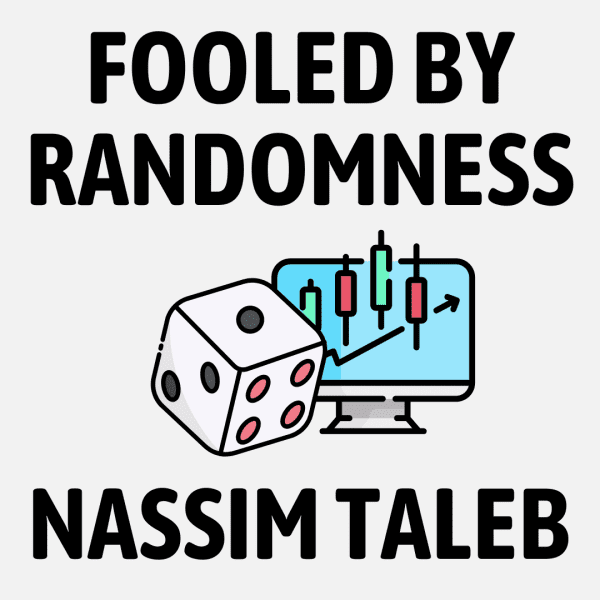
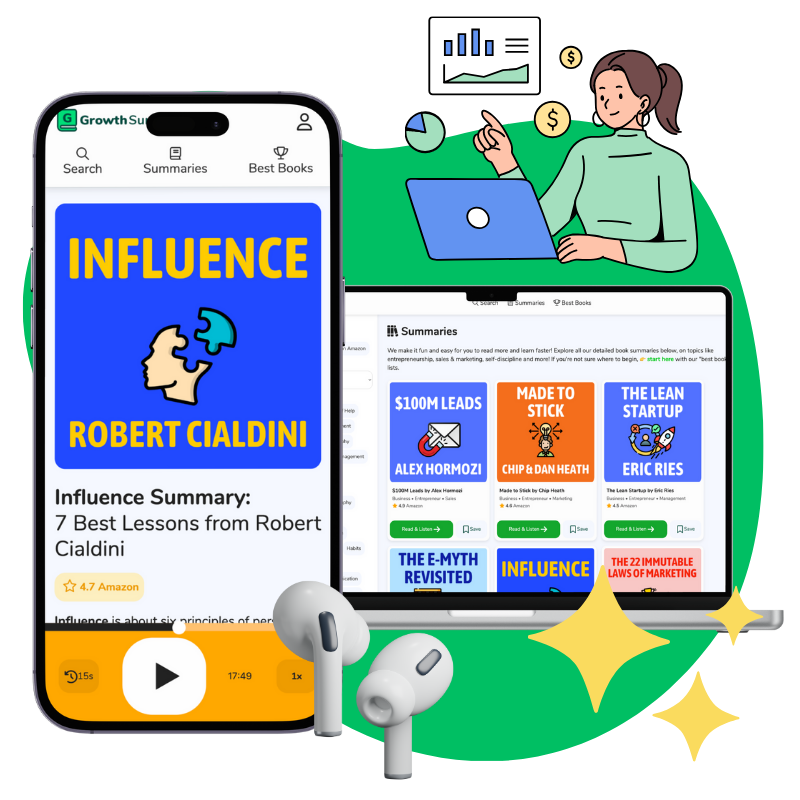
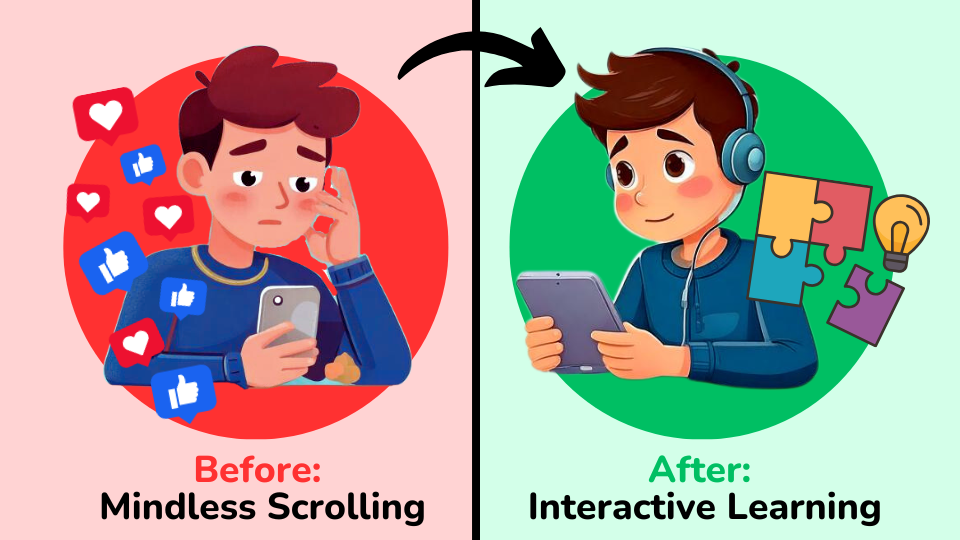








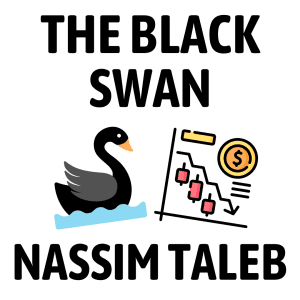
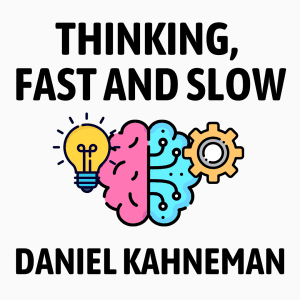


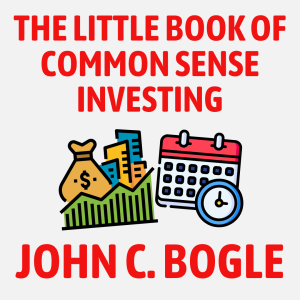
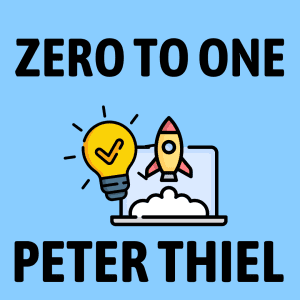

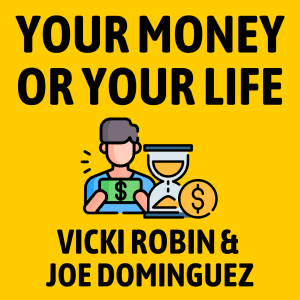

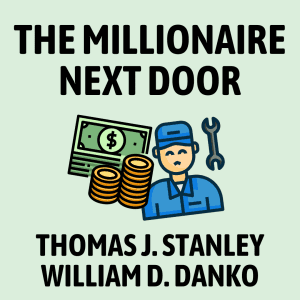








Community Notes